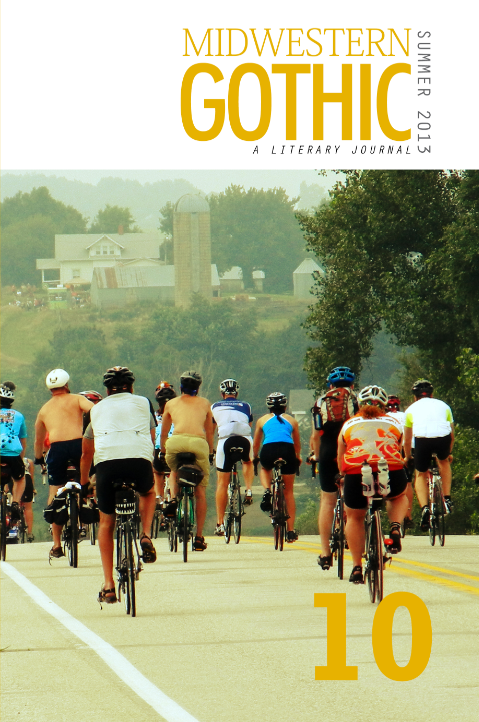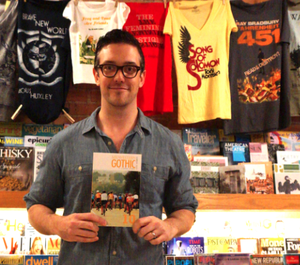Midwestern Gothic hopes its short fiction and poetry will help define region

And although it’s called Midwestern Gothic, don’t think Akron-based vampires and historical romance. Think short fiction and poetry that’s about, or inspired by, the Midwest and its people, all bound into a quarterly journal that’s based in Ann Arbor.
Admittedly, the crowded lit mag marketplace already features numerous journals located in the Midwest (The Mid-American Review, Passages North, The MacGuffin, etc.); but Midwestern Gothic founders Robert James Russell and Jeff Pfaller felt that what was missing was a journal specifically focused on painting a portrait of the region, warts and all.
Pfaller - who lives near Chicago - and Russell became friends while they were undergraduates at Michigan State University. They both became fiction writers, and Russell went to England to pursue graduate studies in American regionalism. (He openly acknowledges the irony of this, by the way.)
“I started thinking about regionalism in the Midwest,” said Russell. “ … I even tried to escape, but I ended up back here. I just think it’s really important to tell the story of the Midwest. We wanted to fill a niche that wasn’t necessarily being filled, and people are responding.”
They are, indeed. MWG’s website launched in 2010, in order to raise awareness and introduce the journal to the world; but the first hard copy appeared in January 2011, with several pieces by writers who were solicited by Russell and Pfaller.
Fast forward more than two years, to now, when the pair receives between 250-300 submissions for the journal’s 30-35 slots. (MWG’s poetry editor is Georgia-based Christina Olson, who grew up in the Midwest.)

Midwestern Gothic co-founder Rob Russell at Literati, after a recent MWG readings event.
Photo provided by Rob Russell
Unlike other literary journals that get backlogged - so that even if your work is accepted, you may not see the poem or story in print for a few years - MWG selects the best of the best for each issue, and opts to give a whole new meaning to the phrase “encouraging rejection.”
“It’s more of a headache than it’s worth to try to personalize rejections, but if we particularly like a piece, we’ll write ‘Please submit this again,’” said Russell. “Sometimes it’s a great piece, and it just comes at the wrong time. But that’s a nice problem for us to have.”
Russell and Pfaller use Amazon’s print-on-demand service, CreateSpace, for its hard copy edition, but the journal is also available via iBooks, PDF, ePub and Kindle. (MWG’s website features author interviews instead of the work that appears in the journal.)
“We've just found that, as a journal, it's not in our best interest to use a traditional printer and print off a couple thousand copies of an issue in advance,” Russell explained in an email. “Our experience has been that once a new issue comes out, it's the new shiny toy that people want. Not that we can't still sell back issues (we absolutely do), but people tend to want the newest issue, and it doesn't make sense to have leftover copies sitting around. Each issue has its own ISBN, the final product is great, and the customer gets them quickly - so we're quite happy with it.”
Of course, MWG could have just joined the legion of online lit mags, and Russell acknowledges that there are many good ones out there; but MWG’s founders really wanted to have a tangible product that readers could hold in their hands. (Hard copies of MWG are available locally at Literati and Nicola’s.)
“Maybe it’s a generational thing,” Russell said. “Jeff and I are 32, and we still like the hard copies. Interestingly, they sell almost as well as the e-version. We put a pretty product together, and we spend a lot of time on the look of it. … This is another vehicle to get the stories out there - just a different version. We’re certainly not offended if someone’s reading it on their Kindle, but we really like the hard copies on the shelf, too. It just looks nice.”
Jenn McKee is an entertainment reporter for AnnArbor.com. Reach her at jennmckee@annarbor.com or 734-623-2546, and follow her on Twitter @jennmckee.

